(BlackFitness101.com) In today’s fast-paced world, regular physical activity is not just a recommendation but a necessity for maintaining a healthy lifestyle. Exercise offers transformative benefits, not only for physical health but also for mental well-being, emotional stability, and overall quality of life. As a fitness trainer, I’ve seen firsthand the profound impact that movement can have on individuals and communities, especially within the African American population, where health disparities often necessitate a more deliberate focus on fitness and wellness. This article explores the seven major benefits of regular physical activity and emphasizes its importance in the African American community.
1. Improved Cardiovascular Health
Cardiovascular diseases remain one of the leading causes of death in the African American community. Hypertension, heart disease, and stroke disproportionately affect African Americans due to a combination of genetic predisposition, lifestyle factors, and systemic health disparities. Regular physical activity, such as walking, jogging, swimming, or cycling, plays a crucial role in combating these conditions.
Exercise strengthens the heart, improves blood circulation, and reduces high blood pressure. Aerobic activities help lower LDL (bad cholesterol) while increasing HDL (good cholesterol), significantly reducing the risk of heart-related ailments. For African Americans, prioritizing heart health through consistent exercise can bridge the gap in health disparities while promoting a longer, healthier life.
2. Weight Management and Reduction of Obesity
Obesity is a significant health concern in the African American community, with cultural preferences and systemic barriers contributing to higher rates. Regular physical activity is a cornerstone of effective weight management, helping to burn calories, build lean muscle mass, and boost metabolism.
Strength training, high-intensity interval training (HIIT), and even culturally enjoyable activities like dance can make weight management more engaging and sustainable. For many in the African American community, incorporating group-based fitness programs or family-oriented workouts can make exercise feel less like a chore and more like a communal activity.
Additionally, combating obesity through exercise reduces the risk of developing chronic conditions like type 2 diabetes and certain cancers, which are prevalent in African American populations. Weight loss isn’t just about aesthetics; it’s about reclaiming health and confidence.
3. Enhanced Mental Health and Stress Reduction
The mental health benefits of exercise are unparalleled. Physical activity releases endorphins, the body’s natural “feel-good” chemicals, which help reduce stress, anxiety, and symptoms of depression. African Americans often face unique stressors due to systemic inequities, racial discrimination, and socio-economic challenges, making mental health a critical aspect of overall wellness.
Regular workouts, whether it’s yoga, jogging, or boxing, can provide a mental escape and create a sense of accomplishment. Movement-based activities also help improve sleep quality, reduce cortisol levels (the stress hormone), and promote mindfulness. Fitness programs designed to address mental well-being in the African American community, such as meditation-infused exercise classes or wellness retreats, are growing in popularity as individuals recognize the holistic benefits of staying active.
4. Lower Risk of Chronic Diseases
Chronic illnesses like diabetes, hypertension, and cancer disproportionately affect African Americans. Regular physical activity has been proven to prevent or manage these diseases effectively. Exercise increases insulin sensitivity, helps regulate blood sugar levels, and reduces inflammation in the body, all of which are essential for preventing diabetes.
Weight-bearing exercises, such as walking or resistance training, can also help prevent osteoporosis, a condition that is often overlooked but still poses a risk, especially to African American women. By engaging in consistent exercise, individuals can take proactive steps to avoid or mitigate the effects of chronic diseases, empowering themselves to live healthier, more vibrant lives.
5. Improved Mobility, Strength, and Flexibility
Physical activity is essential for maintaining mobility, strength, and flexibility, particularly as individuals age. Within the African American community, where joint and musculoskeletal issues may go untreated due to limited access to healthcare, the importance of mobility-focused exercise cannot be overstated.
Activities such as Pilates, yoga, and stretching routines enhance flexibility, reduce the risk of injury, and improve posture. Strength training helps preserve muscle mass and bone density, particularly important for those at risk of osteoporosis. Staying mobile ensures that individuals can continue to participate in cultural, social, and familial activities that enrich their lives.
6. Boosted Immune System and Longevity
In the post-pandemic era, the importance of a strong immune system has taken center stage. Exercise boosts immune function by increasing circulation and promoting the efficient distribution of white blood cells, which help fight infections. This is particularly crucial for African Americans, who have historically faced disproportionate impacts from illnesses like COVID-19 due to underlying health disparities.
Moreover, physical activity is linked to increased longevity. By reducing the risk of chronic diseases and promoting overall vitality, exercise serves as a long-term investment in health. African Americans, with a cultural history of resilience and strength, can harness the power of exercise to not only extend their lifespans but also improve the quality of those years.
7. Strengthened Community and Cultural Identity
Exercise has the power to unite individuals and foster a sense of community. Group fitness classes, community running clubs, and local wellness events create spaces where African Americans can come together, support one another, and celebrate health.
Culturally relevant fitness activities, such as African dance classes or gospel-infused Zumba sessions, can resonate deeply, making exercise both meaningful and enjoyable. These activities not only promote physical health but also strengthen cultural pride and connections. When fitness is integrated into the community, it becomes a shared journey toward collective well-being.
Exercise Within the African American Community: Overcoming Barriers
While the benefits of exercise are clear, barriers to regular physical activity persist within the African American community. These challenges include:
- Lack of Access to Facilities: Many African American neighborhoods lack safe parks, gyms, or recreational spaces, making exercise less accessible.
- Time Constraints: Balancing work, family, and other responsibilities can make finding time for exercise difficult.
- Cultural Perceptions: Historical and cultural attitudes toward body image and health can sometimes discourage prioritizing fitness.
- Systemic Barriers: Healthcare inequities and economic disparities often limit access to fitness resources.
Addressing these challenges requires a multifaceted approach, including community investment, culturally tailored fitness programs, and education about the importance of exercise. Grassroots initiatives, such as organizing free fitness classes in local parks or creating wellness programs through churches and community centers, can make a significant difference.
How to Get Started
For individuals looking to incorporate regular physical activity into their lives, here are some tips:
- Start Small: Begin with 10-15 minutes of daily activity and gradually increase the duration and intensity.
- Choose Enjoyable Activities: Whether it’s dancing, walking, or playing a sport, find something you genuinely enjoy.
- Set Realistic Goals: Create achievable fitness milestones and celebrate progress along the way.
- Involve Others: Exercise with friends, family, or community groups to stay motivated.
- Seek Professional Guidance: Work with a fitness trainer or join a structured program for expert advice and support.
Regular physical activity is a powerful tool for improving health and well-being, particularly within the African American community. Beyond the physical benefits, exercise fosters mental clarity, emotional resilience, and a stronger sense of community. By overcoming barriers and embracing culturally relevant fitness practices, African Americans can not only reclaim their health but also create a legacy of wellness for future generations.
So, lace up your sneakers, find a rhythm that works for you, and take that first step toward a healthier, happier life. Fitness is not just a personal journey; it’s a communal celebration of strength, resilience, and vitality. Let’s move forward together—literally!
Staff Writer; Janet Banks
Questions? Feel free to email me at; JBanks@BlackFitness101.com.


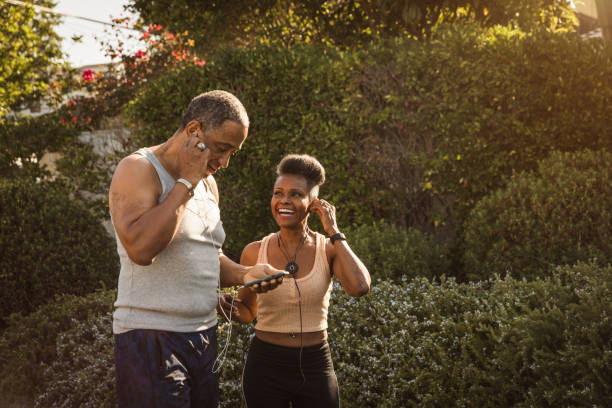






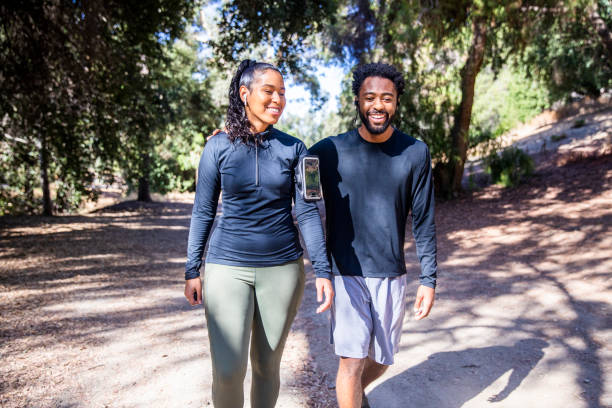
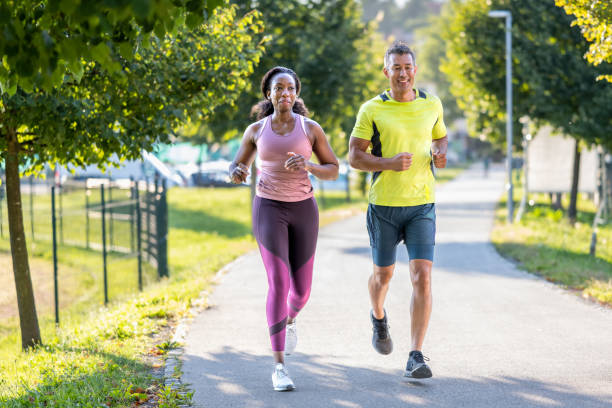
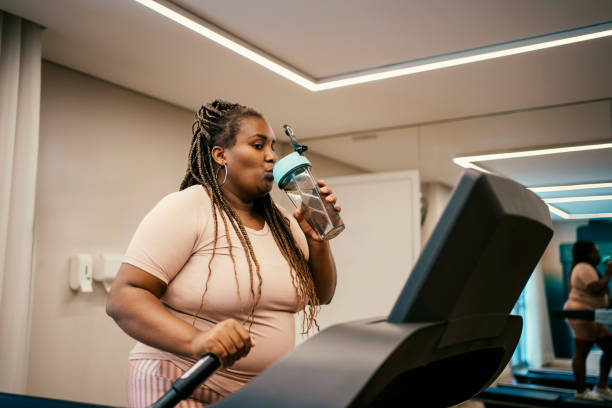
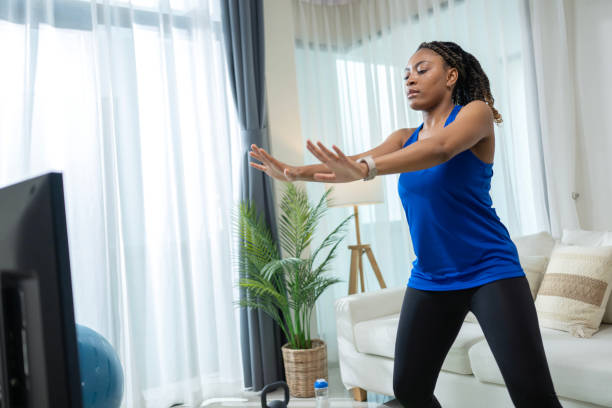
Leave a Reply